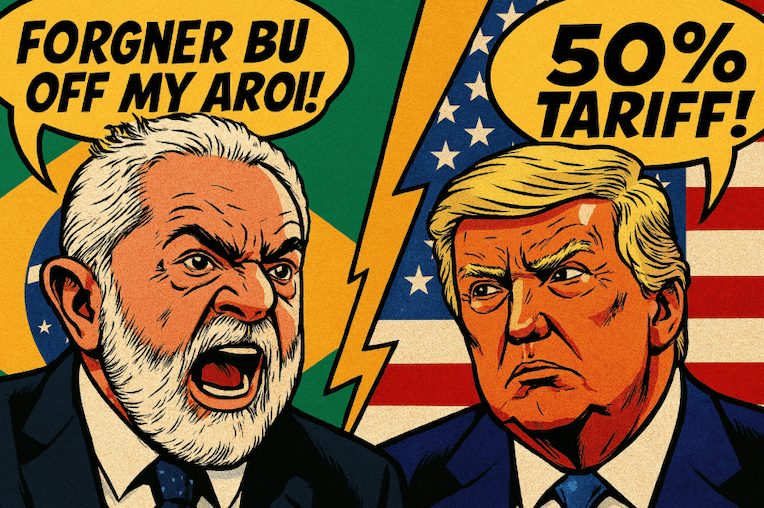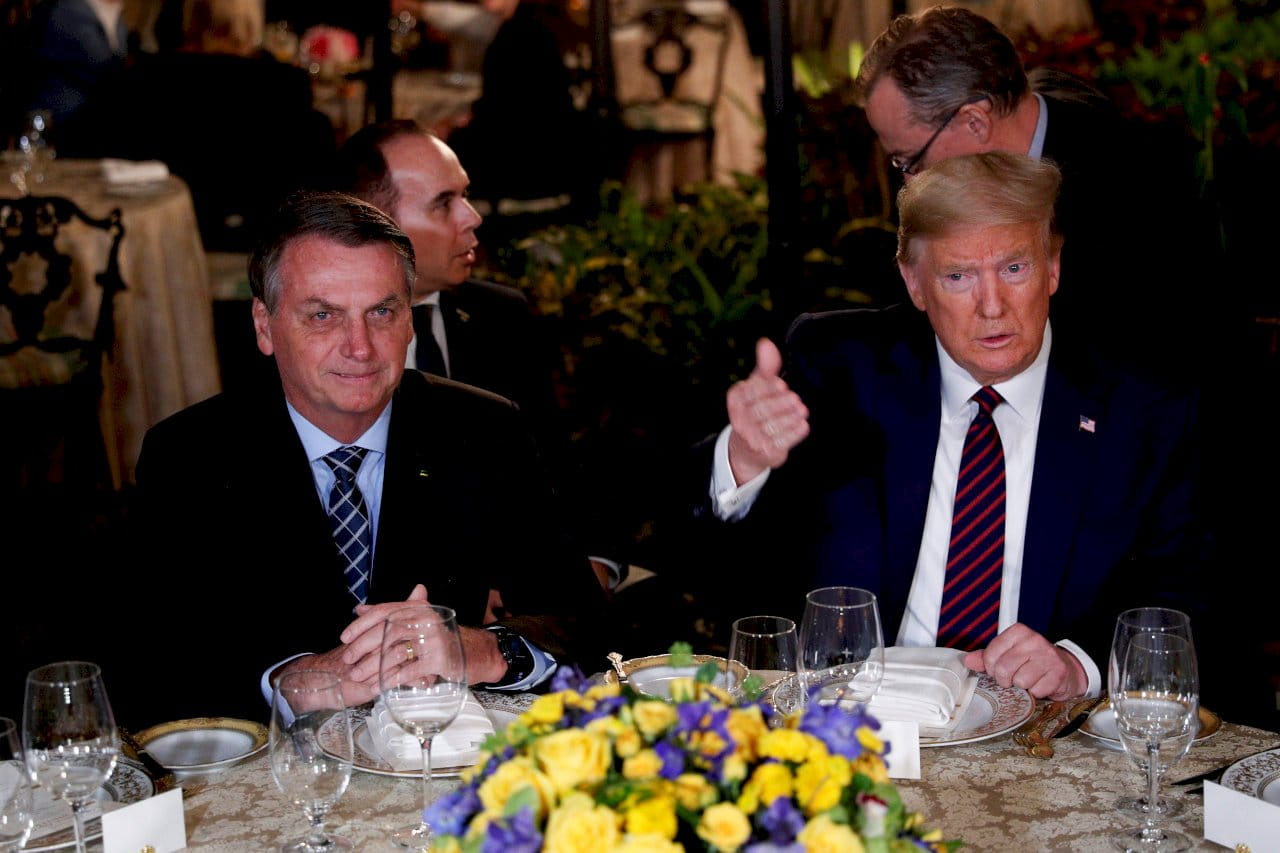
The Brazilian government recently filed a lawsuit against Trump's ally, former president Bolsonaro. In response, Trump was furious and announced that starting August 1, an additional 50% equivalent tariff will be imposed on all Brazilian goods exported to the US, targeting the real-time payment system Pix launched by the Brazilian Central Bank, questioning its encroachment on the market share of American financial players in Brazil, thus initiating a trade investigation against Brazil. This immediately triggered a strong backlash from the current president Lula, who bluntly stated: 'Foreigners should not interfere in politics!'
The US officially initiated a trade investigation against Brazil, and the ban on X is also counted.
US Trade Representative Jamieson Greer announced on July 18 that a digital trade investigation against Brazil would be launched, focusing on the real-time payment system Pix launched by the Brazilian Central Bank. Greer stated that this investigation would assess whether Brazil provides more favorable treatment to other countries than to the US in terms of tariffs and non-tariff barriers, and will also examine whether American tech companies have been punished for previously refusing to cooperate with Brazil's political speech censorship.
This investigation dates back to the controversy in August 2024. At that time, the Brazilian government requested Twitter (X) to establish a legal representative office locally and remove false information and politically sensitive content, or it would be banned. However, Elon Musk refused to compromise, and Brazil ultimately ordered the ban on X. This move made American tech companies quite dissatisfied, believing that Brazil is extremely unfriendly to foreign companies, equivalent to indirectly punishing American firms.
Brazil and BRICS are suspected of weakening dollar dominance, causing Trump's dissatisfaction.
In the same year, Brazil and other BRICS countries launched the cross-border payment platform BRICS Pay, aimed at bypassing the SWIFT system to conduct transactions in national currencies. At the BRICS summit held in Rio that year, member countries also discussed establishing a common reserve currency, directly challenging the status of the dollar.
The Pix system launched by the Brazilian government in 2020 allows local residents to transfer money 24/7 with almost no transaction fees, completing payments using a mobile app, QR code, or simple account codes, without needing to go through credit card companies. In just 5 years, Pix has become popular among 60 million merchants locally, from street vendors to utility bills, and the number of users has surpassed 150 million.
US Trade Representative Greer pointed out that the Brazilian government might favor its domestic payment systems and cooperate with other countries, further weakening the business layout of American financial players in the region. This series of actions is seen as undermining the dollar's financial hegemony, which has also made American President Trump quite unhappy.
Trump speaks out for Brazil's former president, threatening to investigate Brazil.
On July 7 of this year, Trump called for Brazilian authorities to withdraw the prosecution against former president Bolsonaro and criticized it as a 'political witch hunt.' Bolsonaro has a close relationship with Trump, being almost political allies and personal friends. After leaving office, he has been entangled in multiple judicial cases and is being pursued by the current president Lula's government.
Therefore, in mid-July, Trump directly sent a letter to Brazilian President Lula, warning that if Brazil does not make concessions, the US will initiate a comprehensive investigation. He also threatened to impose a 50% punitive tariff on all Brazilian imports starting from August 1. Trump pointed out that the Brazilian government is using the Pix payment system to squeeze out American credit card and fintech companies, leaving American businesses without a fair chance to compete in the local market.
Trump imposes a 50% tariff on Brazil; Lula: Foreigners should not interfere in politics.
Subsequently, Lula responded to Trump's sudden threat of a 50% tariff, emphasizing that this is an interference in Brazil's sovereignty and judicial independence. In another speech on the same day, he criticized Trump saying, 'Foreigners should not interfere in politics,' and pointed out that several accusations made by Trump are 'not factual,' especially that Brazil is not a trade surplus country with the US, but has long been in deficit.
He emphasized that Bolsonaro was prosecuted for attempting a coup and threatening to assassinate the vice president and the president of the Supreme Court. The judiciary is completely independent of the president and it is not political persecution. Lula criticized Trump for announcing tariff decisions in an open letter, damaging the friendly relations between the two countries that have lasted for 200 years, and expressed that Brazil is willing to negotiate in 'all languages in the dictionary' first, but if negotiations fail, they do not rule out resorting to the WTO, retaliatory tariffs, or joining other countries in response.
 Trump and former Brazilian president Bolsonaro
Trump and former Brazilian president Bolsonaro
He also emphasized that Brazil is actively exploring new markets in the EU, ASEAN, and Latin America, and will not become a 'hostage' of the United States, but still hopes to maintain relations with the US. Regarding Trump's intention to act as a mediator in the Russia-Ukraine war while selling more weapons instead, Lula bluntly stated that the world lacks effective global governance and that the UN Security Council should be reformed to genuinely promote peace. He finally assured the Brazilian people that he would explain Brazil's position in a national address, emphasizing that Brazil does not accept any coercive orders and only accepts negotiations based on equality.
This article about Trump's 50% retaliatory tariffs on Brazil and the initiation of a trade investigation, with President Lula stating: 'Foreigners should not interfere in politics,' first appeared in Chain News ABMedia.


